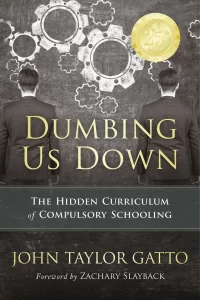What is Lifeschooling?

Just do a Google search and you’ll find a myriad of similar definitions for lifeschooling.
But for our Jesus-loving crew, it’s a term to more succinctly define our family’s approach to how we “do school” as Christian unschoolers.
How We Define Lifeschooling
A lifestyle of learning and growing that is driven by humbled gratefulness for Jesus – the Giver of Life – and the desire to steward well the unique story we each have been gifted with, because of who He is and what He has done for us. Lifeschooling isn’t about academics, but more about prioritizing the cultivation of what can’t be tested or graded, like mindset, character, habits, life skills, and a life of intentionality that is powered by the gospel.
What Does This Practically Look Like?
- We are what you would call unschoolers or natural, self-directed learners …
In the sense that neither factory-model, institutional education (whether public or private) nor curricula teacher’s guides (even if they are faith-based!) dictate what or how my kids learn; that they get to lead the way in their education, with me surrendering and trusting that God knit them together in my womb with their own unique set of: personality, talents, gifts, and purpose. And that includes how they learn best.
Now, this doesn’t mean my kids never take classes or never use curriculum. It just means that we utilize any classes or curriculum as tools to support them along their journey; they are not things that keep my kids in bondage from flourishing as God intends them to. (Have you ever heard kids – homeschool kids included – complain about school? What a tragedy that education – which is really learning about different aspects God’s big, beautiful world – can be a crushing source of disdain in our youth!).
While the attributes that define the term “unschooling” have morphed over the years (in relation to other homeschool pedagogy), the original term, coined by the father of unschooling, John Holt, in the 1970s, simply referred to teaching and learning that did not resemble the teaching and learning found in the public school system.
As the homeschool movement (and methodologies) grew, it has now become a subset of homeschooling that some parents – especially Christian parents – shy (or maybe even flee, LOL) away from because of how liberal it seems relative to how everyone else “does school” (and, oh, how we all love to be in control … or at least feel like we are!).
Therefore, I want to be clear that this doesn’t mean my kids are little heathens, running their parents ragged (as those who fear the idea of unschooling may think). Or that they aren’t teachable. Which brings me to the next aspect of what “lifeschooling” means to us.
- Who are powered by the gospel …
In the sense that our learning and growing is propelled by humbled gratefulness for Jesus – the Giver of Life – and the desire to steward well the story we have been gifted with, in such a way to do the good works which have been prepared beforehand by God, for His glory.
My kids aren’t being trained up to live without boundaries or without respect for authority, living like they can do whatever they want, whenever they want, however they want (though they may try!).
They are being trained up as disciples in The Bigger Story, with full awareness of who they were before Jesus, and who they are now (as well as what they are called to) because of Jesus.
This means surrendering to God’s will and sovereignty, while simultaneously living with intentional stewardship. In the home. Outside the home. I call this surrendered stewardship.
What Does Education and School Actually Mean, Anyway?
First let’s go back to the roots words of “education” and “school”:
Education:
Latin “educatus”: to bring up, to train
Latin “educere”: to train up, bring out, lead forth
School:
Greek “schole”: spare time, leisure, rest, ease
Interesting, right?
So when I think of my role as a home educator, I don’t think of myself as a teacher of rigorous academics trying to push information onto my kids, making sure they know all the things, but instead I think of myself as a mentor who:
- gently trains up my kids in the way of the Lord,
- brings out what God has already uniquely created in them, and
- leads them forth by setting an example in what surrendered, Spirit-led living looks like.
As well, most people today associate the idea of school with “boring, mundane, hard work, a necessary evil”.
And sadly, this negative connotation is not only found in institutional (government or private) settings but even at home! Learning is no longer leisurely or enjoyable because well-meaning parents, in the pursuit of raising excellent kids, end up subjecting their kids to studies and work that hold no interest for them. We hold society’s standards of strong academics above the reality that each child is wired uniquely and may not necessarily fit in boxes that our world says will produce intellectually strong, articulate, and successful adults.
I don’t know about you guys, but understanding the original meaning in the Greek motivates me to create a learning environment that my kids can approach with joy and excitement!
Really, Lifeschooling Is a Way of Life, Not a Way to “Do School”
All of life is education. And all of one’s education comes from life experiences. If you really think about it, you can’t segment nor separate the two.
One big problem is that our world has boxed the idea of a meaningful education into four walls, or at least into structured systems that will (hopefully) produce defined outcomes. (I won’t go into deets in this post, but just take time to learn about the history of schools in our own nation, and its connection with the industrial revolution. A great place to start is with John Taylor Gotto’s Dumbing Us Down.).

Another problem is that families who have chosen homeschooling as their path have, unfortunately, brought this same, limited paradigm into their own homes. And understandably so, because it is no small feat to shake off what every single one of us has been indoctrinated with, with regards to what learning should look like. In fact, most parents don’t even know to question or challenge the conventional paradigms of education/schooling; it’s what is “normal” (though … where has “normal” gotten us today?!).
It even took me a minute to get to where we are today in our family’s homeschool (you can read more about our homeschool beginnings here).
With all that said, lifeschooling (for us) is actually not so much how our family “does school”, as it is an overall approach to learning and growing and stewarding well the life God has given us in His story. One where we endeavor to both: 1) gratefully harness our individual, God-given, unique makeup and 2) intentionally utilize the resources available to us for God’s glory.
It is also a perspective that takes into account that my kids’ ultimate outcomes will be from the culmination of every, single aspect of their life. Teachers and mentors, peer relationships, classes, books, movies, hands-on activities, field trips, work, mistakes and failures, service … these ALL make up my kids’ “curriculum”. And our teacher’s guide? The Word of God.
This is how I believe leaders are raised … when we give them an upbringing that lays a solid foundation in the gospel, and fosters a sense of ownership and agency in our kids over their learning and growing, because they know that all of life (not just books they read or assignments they do) is their education and schooling.
This post may contain affiliate links and we may earn compensation when you click on the links, at no additional cost to you.
